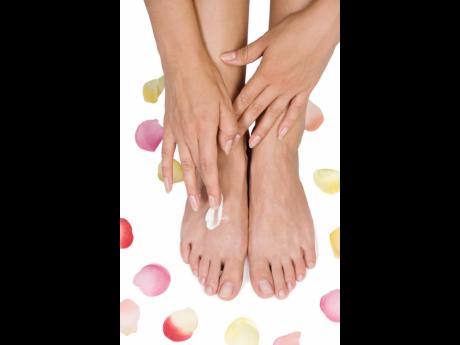Breaking stereotypes in self-care
SELF-CARE IS not synonymous with self-indulgence or being selfish. Self-care means taking care of yourself so that you can be healthy, you can be well, you can do your job, you can help and care for others, and you can do all the things you need to and want to accomplish in a day.
When it comes to mental health, self-care can help people manage stress, lower their risk of illness and increase energy levels. But what exactly is self-care? Why is it important, and how can people incorporate self-care into their daily lives?
Mental health encompasses one’s emotional, psychological and social well-being. It is essential to overall health and quality of life and affects how one thinks, feels, acts and responds.
According to Dr Rivane Chybar Virgo, medical doctor and health and wellness coach, caring for your mental health is just as important as caring for your physical health.
“Self-care plays a role in maintaining mental health and in supporting treatment and recovery for people with a mental illness. Self-care means taking the time to do things that help people live well and improve their physical and mental health,” Dr Chybar Virgo said.
Self-care she said, is important because it enhances our well-being by keeping us connected to ourselves and what matters most to us. It can help prevent illnesses from occurring or recurring, and it builds our capacity to handle stress and recover from adversity.
“Self-care encourages you to maintain a healthy relationship with yourself so that you can transmit the good feelings to others. You cannot give to others what you do not have yourself. While some may misconstrue self-care as selfish, it is far from that. When you pay adequate attention to your well-being, you are not considering your needs alone,” Dr Chybar Virgo said.
“You are reinvigorating yourself so that you can be the best version of yourself for the people around you. Everyone around you also benefits from the renewed energy and joy you exhibit,” she said.
Unfortunately, self-care is sometimes seen as a luxury instead of a need, but Dr Chybar Virgo wants to remind everyone that self-care is something that everyone needs daily, not just those who may feel stressed.
Self-care is part of the answer to how we can all better cope with daily stressors. It is work stress. It is the stress of trying to keep up with the pace of daily life, which technology has hastened more than ever (just think how many emails come flooding into your inbox each day). People are feeling lonelier and less able to unwind and slowdown, which makes them feel more anxious and overwhelmed by even the simplest tasks,” Dr Chybar Virgo said.
She recommends making self-care part of one’s routine and intentionally protecting time for self-care activities. “This can look like putting time in the calendar for self-care or setting standing dates with friends, family members and partners to connect, or take time to do something both parties enjoy. While engaging in self-care activities, take steps to limit distractions such as turning on ‘do not disturb’ on devices during times set aside for self-care activities,” Dr Chybar Virgo said.
Self-care is personal, and no general principle will always work. What motivates you and inspires you is different from the person next door. Look for the things that make you feel alive. Make dates with yourself and when you commit to working out or doing something for yourself, keep the commitment you make to yourself.
“We do not back out on our friends, do not back out on yourself. By being healthy about self-care, you will feel better equipped to help others. Go live your best life,” Dr Chybar Virgo said.
SOURCES: Health Talk Sundays, World Health Organisation, National Institute of Mental Health


